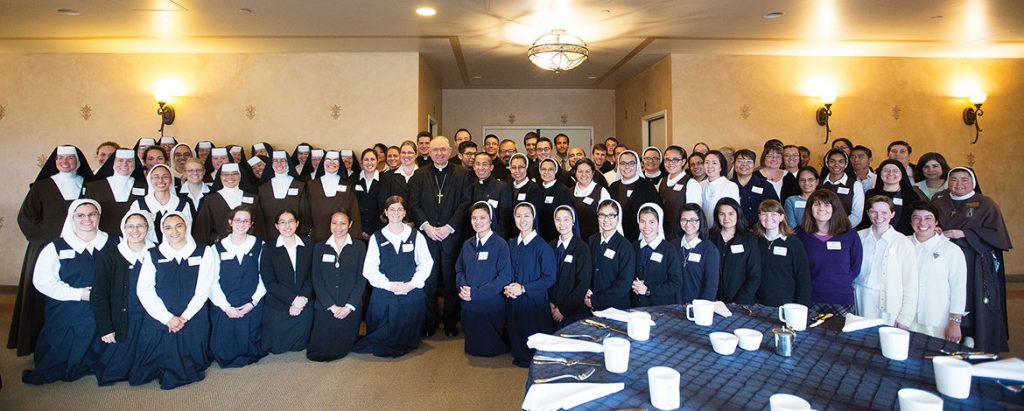As I continue to visit parishes around this great archdiocese, I see every day that the life of faith is lived in the heart of the parish.
We turn to our parishes for the Eucharist and the sacraments. We turn to our parishes to hear the Word of God, and to bring us together to serve to the poor and others in our community.
So the parish really is the site and source of the new evangelization. Because the parish is where the mystery and mission of the Church is lived out every day.
The parish is not an “institution.” It’s more like a family. A family that is centered on the Eucharist and the Word of Jesus and united in love for one another and care for the world.
A good deal of every parish’s daily work is to strengthen the individual members of the parish family — to feed their hunger and heal their wounds and to teach them the reality of God.
But in serving its people, the parish is never meant to be self-centered or self-serving.
Every parish, even the smallest and poorest parish, should understand that it shares in the universal mission that Jesus Christ gave to his Catholic Church — to proclaim the Gospel and to make disciples of all peoples.
In “The Joy of the Gospel,” Pope Francis writes: “In all its activities the parish encourages and trains its members to be evangelizers. It is a community of communities, a sanctuary where the thirsty come to drink in the midst of their journey, and a center of constant missionary outreach.”
I think the challenge of our times is to bring this new spirit of mission outreach to everything we do, to every institution and ministry in the Church. That missionary spirit begins “at the source” — in the parish.
As we move forward in our work of the new evangelization, more and more we need to try to find ways to bring this “missionary” orientation to all our parish programs — religious education, sacramental preparation, all the various ministries of service. Even the finance council and pastoral council need to understand that their work is meant to serve the Church’s mission of salvation.
In our parishes, we need to examine every area and we need to ask — are we calling people to a deeper relationship with Christ? Are we calling them to a deeper commitment to his Gospel and his mission?
For the new evangelization, we also need a full understanding of the Church’s mission.
Obviously, the Church’s mission includes bringing people to the Sacraments, especially the Eucharist and the Sacrament of Reconciliation. It also means proclaiming God’s Word and explaining his Word in our catechesis, our homiletics. It means providing for the spiritual needs and welfare of different communities — such as families and young people and the elderly. It means building our sense of community and fellowship in the Lord.
But the new evangelization is not only “spiritual.” It’s also temporal and corporal and social.
The love of God that we experience and share within our parishes is meant to be shared in many different ways with our neighbors in the wider community, beyond our visible parish boundaries.
We must serve our people, but we can’t stop there. We need to go out into the world — with all its pain and injustice, all its sorrow and suffering. And we need to be healers and reconcilers, peacemakers and defenders of the weak and the innocent.
In his message for this Lent, Pope Francis says, “Dear brothers and sisters, how greatly I desire that all those places where the Church is present, especially our parishes … may become islands of mercy in the midst of the sea of indifference!”
So this week, as we continue almost halfway along in our Lenten journey, let’s continue to pray for one another.
Let’s pray also for a sense of missionary renewal in all our parishes. That we may make every parish in the Archdiocese of Los Angeles “an island of mercy.”
And may Our Lady of the Angels be with all of us, as we journey together in this beautiful mission of the new evangelization.
Editor’s note: This week's column is adapted from the archbishop’s address to the Archdiocesan Pastoral Council’s Annual Interregional Gathering on Feb. 20.

